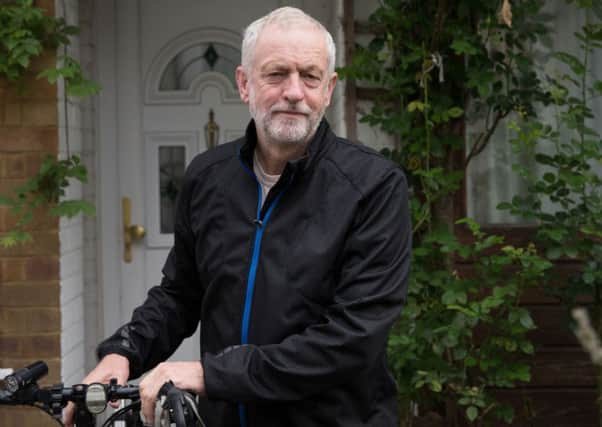Leader comment: Murray move offers Labour some hope


Received wisdom is that the party’s fortunes at the ballot box will be even worse if Jeremy Corbyn is re-elected as leader tomorrow. But while it may be true that Labour looks unelectable under Corbyn, we may find that enough party members don’t care about that consequence. They are more interested in killing off New Labour and returning to what they believe were Labour Party values of old.
That civil war was in evidence again yesterday when David Miliband, in a fresh attack on Corbyn, claimed that the party has not been further from power since the 1930s.
Advertisement
Hide AdAdvertisement
Hide AdSo what do anguished Labour members and supporters do, if they feel that the game is up? Throw their arms in the air in horror and say that it’s a disgrace?
That would achieve nothing. But a response is necessary, because if the party is to rebuild, that process has to begin as soon as possible.
Ian Murray, the party’s only MP in Scotland, has made a smart move by indicating that he would be prepared to return to Corbyn’s shadow cabinet, under certain conditions. Murray was one of the first to resign from the shadow cabinet following the EU referendum, and is clearly no admirer of the leader. For those who have forgotten the detail, Murray’s letter of resignation implied that Corbyn had been less than honest with him, and in a television interview he said of his colleague: “He just can’t lead the Labour Party.” But Corbyn survived a bombardment of resignations, and looks set to contradict Murray’s assertion when the leadership result is announced.
Just three months later, Murray has recognised that a pragmatic approach is required, and he deserves credit for that. There has been much talk of a coup, and while that may still happen if a fresh challenger forces a further leadership election, a revolution looks a lot less likely than before. In which case, Labour has to get on with the leader its members want, and make the best of things. Murray will have more influence as part of the shadow cabinet than he would have outside it, and his talk is of olive branches and uniting the party. With no alternative direction to take, it is a route that more of Murray’s colleagues will have to go down.
Corbyn will not last as Labour leader for long – if he makes it to a general election, he will be gone soon after – and there has to be a party worth leading when he departs. Choosing to work beside him rather than against him might be tacit acknowledgment that electoral defeat is inevitable, but it offers the opportunity to avoid further damaging dispute when it comes to replacing Corbyn.
It takes humility – not in great supply in politics – to admit that a position taken has been overtaken by events. Murray’s task now is to persuade others to put the party’s long-term prospects before their pride.